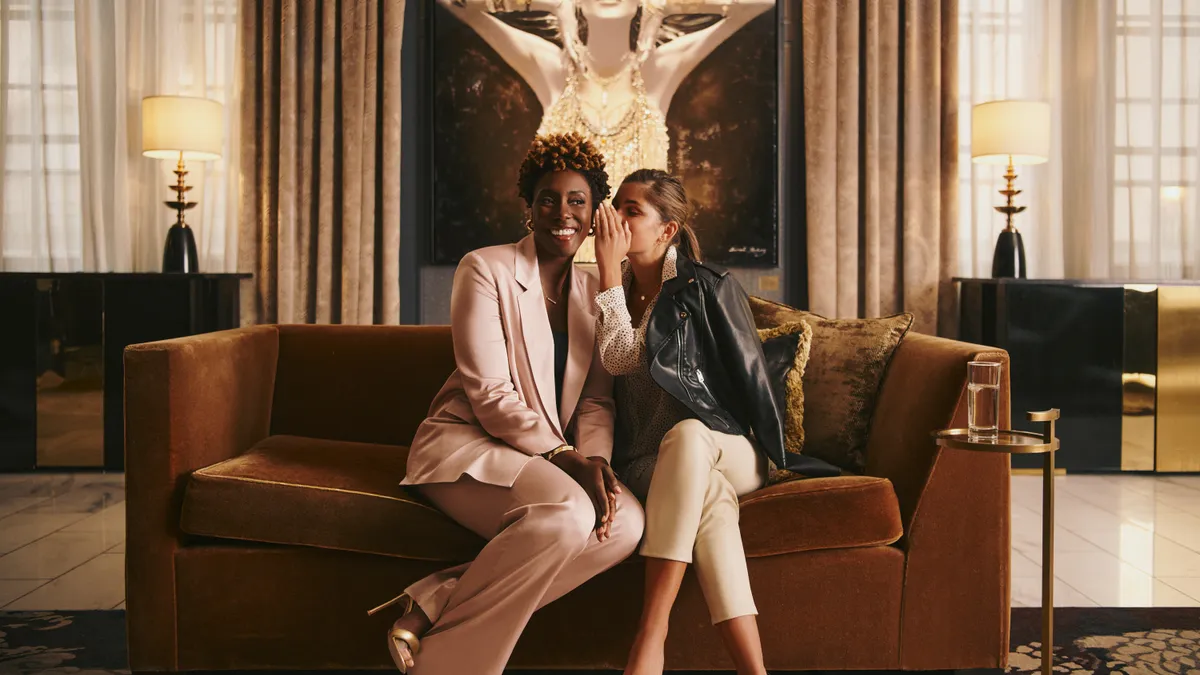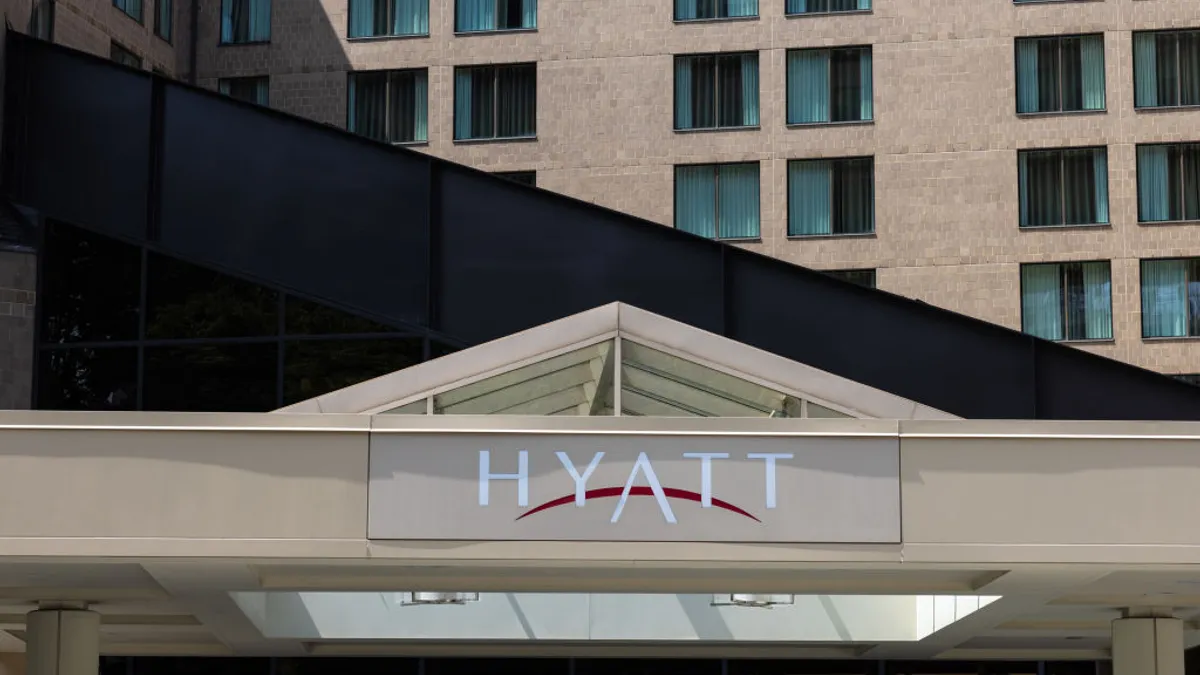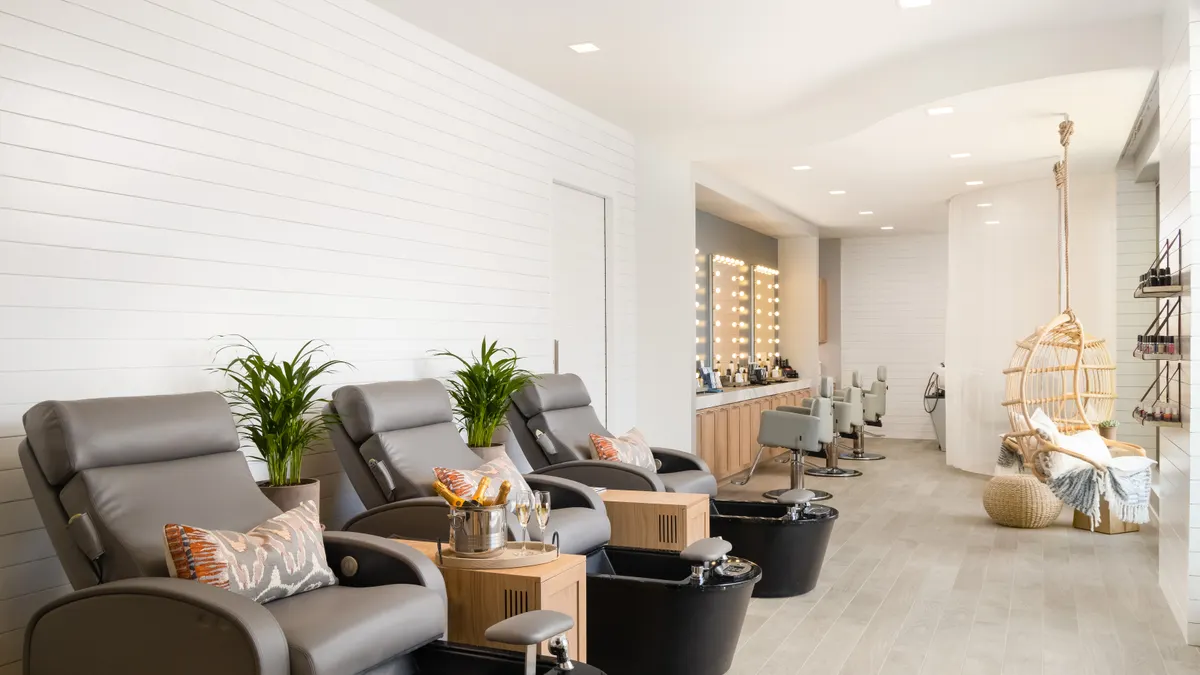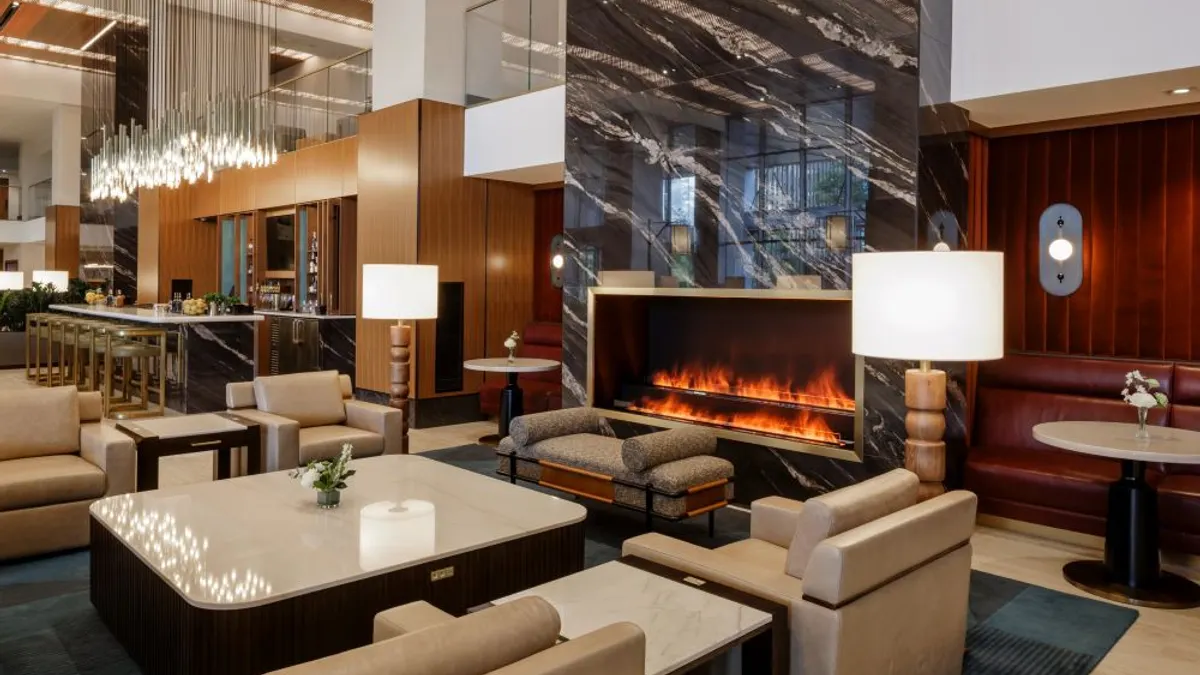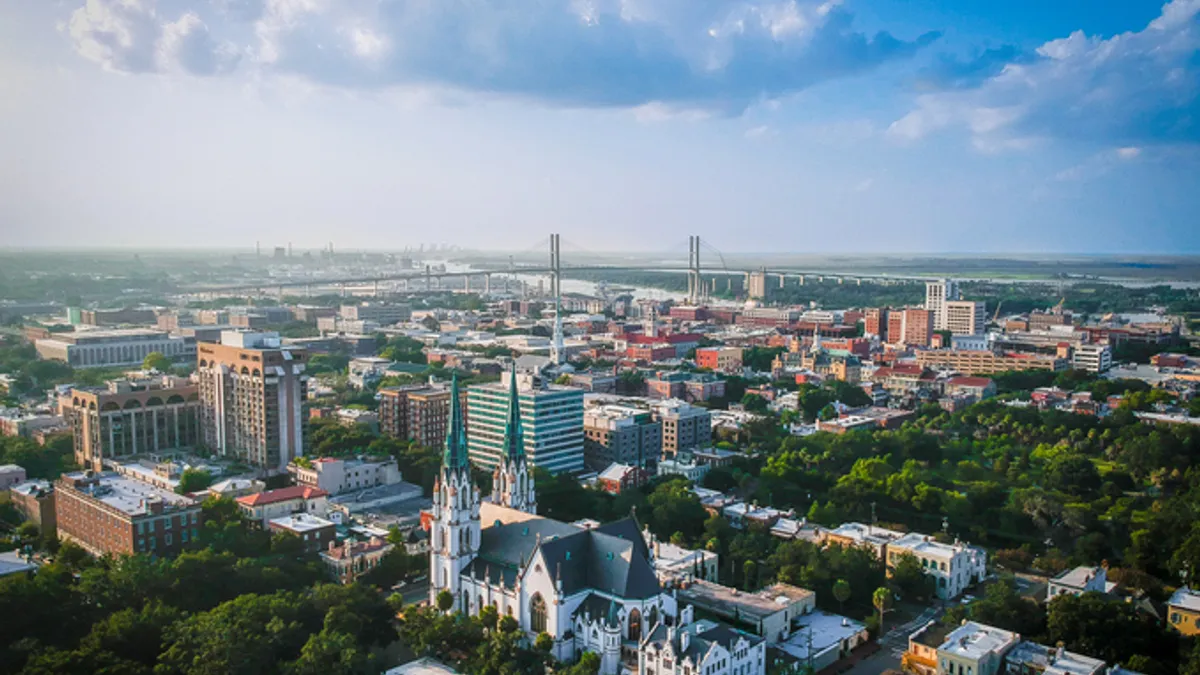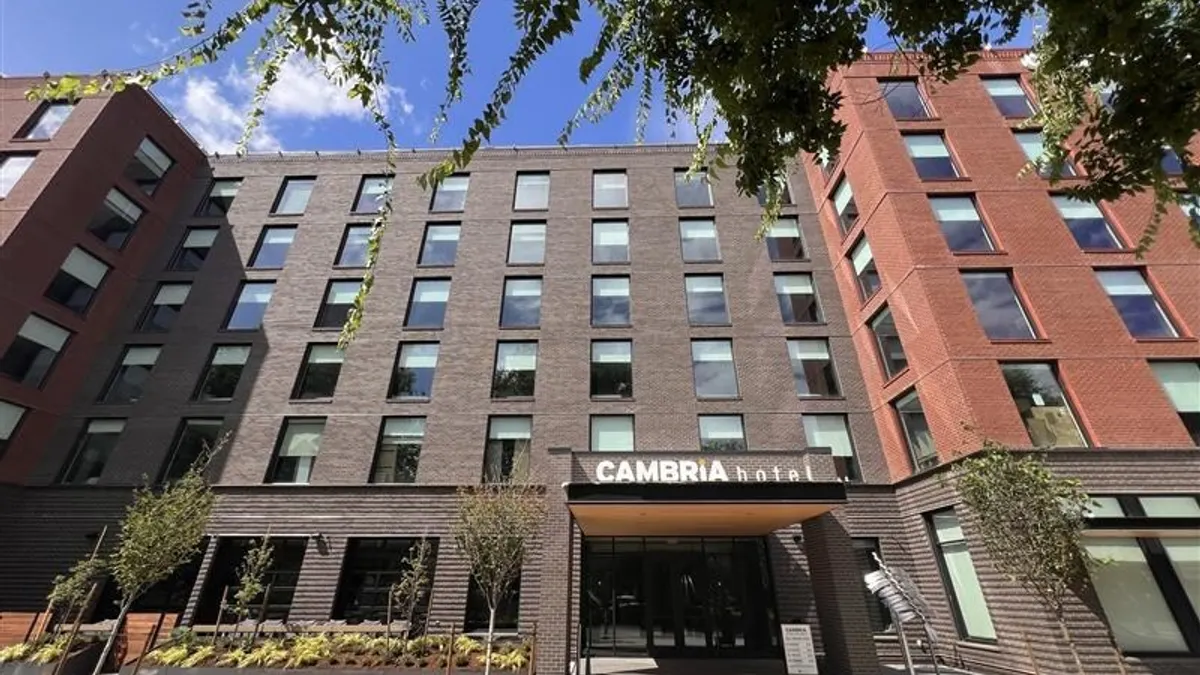In an ad from January, an actor strolls through the lobby of the Allegro Royal Sonesta in Chicago.
She’s recognizable — keen observers would know her from “Arrested Development,” “13 Going on 30” and “Guardians of the Galaxy” — but not exactly a household name.
As she walks, she talks to the camera. “You’ve seen me in countless TV shows and movies,” she says. “You know my face like the back of your hand. But what is my name?”
Judy Greer never introduces herself formally in the minute-long clip. But the actress’s fame level mirrors that of the hotel she walks through.
The ad was the first in a series of campaigns created by Sonesta International Hotels. Like Judy Greer, Sonesta Hotels doesn’t command the name recognition of some of its better-known peers. But now, in its first integrated brand campaign, the company is embracing its relative lack of consumer awareness by giving it a positive spin.
“We just wanted to be honest with ourselves and with our audiences, and be upfront and transparent about where we are in our customer journey — and also have a little bit of fun with it,” Sonesta Hotels Chief Brand Officer Elizabeth Harlow told Hotel Dive. “There's a lot of energy behind our brand, but we still have room to grow in terms of our brand awareness.”
The “Famous But Nameless” clip starring Greer, conceived in partnership with branding agency RO New York, launched the campaign. In July, Sonesta released a second ad, “Whisper,” playing on similar themes, calling its hotels “hospitality’s best-kept secret.”
It may seem like an unusual strategy for an 86-year-old brand. But Sonesta, unlike other hotel companies its age, has experienced rapid growth in recent years. As the company continues to expand, Harlow chatted with Hotel Dive about the unique challenges — and advantages — of marketing a company without the name recognition of its competitors.
A multifaceted campaign
Sonesta claims to be one of the fastest-growing hospitality companies in the world. And though it’s been around since 1937, only in recent years has Sonesta experienced rapid growth, expanding to 280 hotels across eight countries.
“Sonesta is attracting new franchisees to fly its flag at a time when many other hospitality companies are shrinking,” said Sonesta’s Executive Vice President, President of Franchise & Development, Keith Pierce, in a statement last summer about the fast-paced expansion of its franchises.
In 2022 alone, the company added 74 properties to its franchised portfolio, launched the upper-midscale select-service brand Sonesta Essential and kick-started multiple developments across Latin America and the Caribbean. The Financial Times even dedicated a multipage spread to its surprising growth story.
The only problem with that growth, from a brand standpoint, is that customer awareness sometimes lags behind, leaving the company’s marketing team to think of innovative ways to play catch-up.
“I lovingly refer to Sonesta as an 80-year-old startup because we grew so fast and so quickly,” Harlow said. When she joined in 2021, she added, “We didn't have any kind of strategy behind social.”
“We didn't have a TikTok presence until maybe a few months ago. That just shows you the infancy in which we found ourselves in, in terms of our social approach,” she said.
Now that’s changed with the social-first “Whisper” campaign, which showcases influencers Dayna Bolden, Hannah Ann Sluss, Luann Diez, Mada Graviet and Mary Ralph Lawsom whispering to one another about Sonesta hotels. At the end of the video clip, large text reads “the best-kept secret in hospitality.”
Harlow said she saw the influencers as a way to “bridge that gap with younger travelers,” as well as reach highly engaged audiences.
But Sonesta’s demographic considerations go far beyond age, Harlow said. She often seeks “that attitudinal layer,” meaning curious travelers, or “people who are willing to perhaps get out of their comfort zone with a brand that they might not be familiar with.”
Marketing across brands
In addition to marketing its existing brands — including the Royal Sonesta, the James Hotels, Simply Suites and Sonesta Select — Sonesta has been launching new ones.
Last month, the company launched two new soft brands in the upper-upscale and upscale segments: Classico, A Sonesta Collection and Mod, A Sonesta Collection.
The decision to launch the soft brands “was driven by customer needs and wants and what we were hearing from the end consumer,” Harlow said. It was also driven by hotel owners, some of whom had properties they didn’t feel fit in with any of Sonesta’s hard brands.
As soft brands, Classico and Mod allow independent hotel owners to affiliate with Sonesta’s network while retaining their original names, identities and designs. “We wanted to allow for an outlet for these owners and their guests to join the Sonesta family without the heavy standards that we have for our hard brands,” Harlow said. Harlow added that there are no plans to launch more soft brands at this point in time.
For the integrated brand campaign, Sonesta skipped references to its proliferating number of brands altogether. “We knew that we had to get our message across quickly without clouding or confusing the customer with a ton of different brands,” Harlow said. “So we wanted to really guide the customer towards recognition of Sonesta.”
In the future, that will mean focusing its marketing efforts on Sonesta Travel Pass, the loyalty program that spans all Sonesta Hotels, and “really positioning that as the thread that runs through all the brands.”
For now, Harlow’s team is working on the next two phrases of its integrated brand campaign, to roll out later this year. Until then, she said, “I think people don't know us yet.”
“But,” she added, “I think they're slowly getting to know us.”



